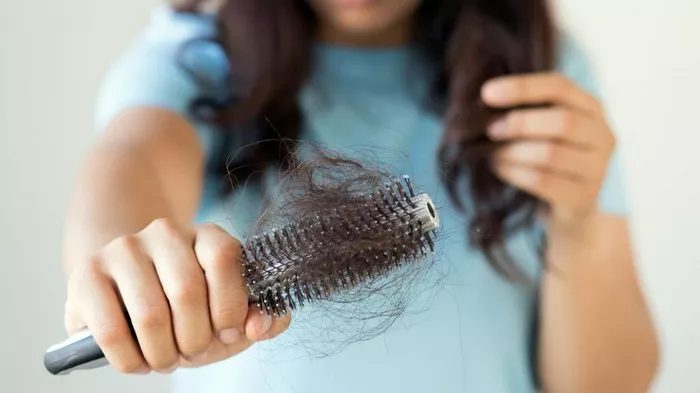Healthy and lustrous hair is often regarded as a symbol of vitality and well-being. However, many individuals grapple with the common issue of dry hair, which can lead to brittleness, split ends, and an overall lackluster appearance. While external factors such as weather and styling practices contribute to dryness, the role of internal factors, including nutrition, should not be overlooked. In this article, we will explore the essential vitamins that play a crucial role in promoting hydration and combating dryness in hair.
Understanding the Causes of Dry Hair
Before delving into the specific vitamins that benefit dry hair, it is essential to understand the root causes of this common concern. Dryness often results from a lack of moisture retention in the hair shaft. External factors like exposure to harsh weather, excessive heat styling, and the use of certain hair products can strip the hair of its natural oils, leading to dehydration. Internally, a deficiency in key vitamins and minerals can also contribute to dryness, as these nutrients play a vital role in maintaining the health and moisture balance of the hair.
Vitamin A: The Moisture Retainer
Vitamin A is a fat-soluble vitamin that plays a crucial role in maintaining the health of skin and mucous membranes, including the scalp. It helps the scalp produce sebum, the natural oil that moisturizes the scalp and keeps hair hydrated. Adequate levels of sebum prevent the hair from becoming dry and brittle. Foods rich in vitamin A, such as sweet potatoes, carrots, and spinach, can contribute to a healthier scalp and more hydrated hair.
Vitamin E: An Antioxidant Boost for Hydration
As a powerful antioxidant, vitamin E helps protect hair cells from damage caused by free radicals. It also promotes blood circulation to the scalp, ensuring that hair follicles receive an ample supply of nutrients and oxygen. Foods rich in vitamin E, such as nuts, seeds, and leafy greens, can contribute to improved hydration and overall hair health.
Vitamin C: Collagen Production for Hair Elasticity
Vitamin C is essential for the production of collagen, a protein that provides structure to the hair. Collagen helps maintain the elasticity of the hair, preventing it from becoming dry and prone to breakage. Citrus fruits, strawberries, and bell peppers are excellent sources of vitamin C that can aid in collagen synthesis and contribute to well-hydrated hair.
B Vitamins: Nourishing from Within
The group of B vitamins, including Biotin (B7), Niacin (B3), and Pantothenic Acid (B5), plays a vital role in maintaining the overall health of hair. Biotin, in particular, is often associated with hair health and can help prevent dryness and brittleness. Whole grains, eggs, and nuts are rich sources of B vitamins that support hair hydration by nourishing the hair follicles and promoting cell growth.
Omega-3 Fatty Acids: Essential for Hair Moisture
Omega-3 fatty acids are essential fats that contribute to the health of hair cell membranes. These fatty acids help keep the scalp hydrated, preventing dryness and promoting overall hair health. Fatty fish, flaxseeds, and walnuts are excellent dietary sources of omega-3 fatty acids that can contribute to the moisturization of hair from within.
Iron: Oxygenating the Hair Follicles
Iron deficiency can lead to inadequate oxygen supply to the hair follicles, resulting in dry and brittle hair. Ensuring an adequate intake of iron-rich foods, such as lean meats, beans, and dark leafy greens, can support healthy blood circulation to the scalp, promoting moisture retention and preventing dryness.
Zinc: Balancing Scalp Health
Zinc is a mineral that plays a crucial role in maintaining the health of the scalp. It helps regulate the production of sebum, preventing an overly dry or oily scalp. Including zinc-rich foods like oysters, pumpkin seeds, and lentils in your diet can contribute to a balanced and hydrated scalp, translating to healthier, more moisturized hair.
See Also: Vitamin D and Hair Loss: Can an Excess Lead to Thinning Hair?
Conclusion
In conclusion, maintaining well-hydrated hair involves a holistic approach that includes both external and internal factors. While external care through proper hydration, conditioning, and protective styling is essential, internal nourishment is equally crucial. Ensuring an adequate intake of vitamins A, E, C, B vitamins, omega-3 fatty acids, iron, and zinc can contribute to the overall health and hydration of your hair. By incorporating these nutrients into your diet, you provide your hair with the building blocks it needs to remain supple, vibrant, and resistant to dryness.


